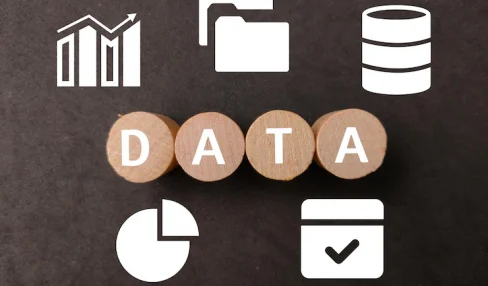How To Increase Your Business Efficiency With Streamlined Data Workflows
4 Mins Read
Published on: 11 October 2023
Last Updated on: 09 November 2024

toc impalement
Efficiency is the key to success in today’s fast-paced commercial world. Streamlining your data workflows is one of the most efficient strategies to increase productivity in your firm.
According to Grand View Research, the worldwide workflow management system market is now estimated at $11.59 billion. It is expected to grow to $86.63 billion by 2030. From 2023 to 2030, the market is predicted to increase at an annual rate of 33.3%.
Whether you’re a small startup or a large enterprise, managing data effectively can make a significant difference in productivity. In this article, we will highlight the importance of data workflows and explore strategies for enhancing your organization’s operational efficiency.
The Importance Of Data Workflows

Data workflows are the backbone of modern businesses, enabling them to manage and leverage vast amounts of information efficiently. A well-structured data workflow ensures that data flows seamlessly from its source to its final destination.
Efficient data workflows not only save time but also enhance the accuracy and reliability of your data. When data moves through a streamlined process, it reduces the likelihood of errors, duplications, and data inconsistencies. This ensures that the insights drawn from it are accurate.
Assess Your Current Data Workflow
Before you can streamline your data workflow, you must first understand your current procedures thoroughly. Examine how data enters your business and how it is processed, stored, and finally used. Identify any bottlenecks, unnecessary stages, or data silos that are impeding information flow.
This evaluation step will lay the groundwork for your improvement efforts. It enables you to identify and prioritize areas that require urgent attention in order to increase efficiency.
Define Clear Objectives And Goals
Efficient data workflows don’t just happen, they are the result of a well-thought-out strategy. Start by setting specific data objectives and goals for your company.
Do you want to increase consumer insights, simplify financial reporting, or boost product development? These objectives will direct your data workflow optimization efforts. Setting specific, measurable, achievable, relevant, and time-bound (SMART) goals for data management provides your team with a clear target.
Choose The Right Tools And Technologies
Selecting the right tools and technologies is instrumental in streamlining your data workflows. According to Gitnux, organizations that focus on data can expect to see an average yearly revenue growth of 5.32%. Invest in data management software that aligns with your objectives.
Look for solutions that offer automation capabilities, data cleansing features, and real-time analytics to simplify data processing and analysis.
In this digital age, businesses have a number of data analytics tools at their disposal. Power My Analytics notes that one such powerful tool is Looker Studio. Also known as Google Data Studio, it is a versatile, user-friendly platform that enables organizations to connect, analyze, and present data.
Looker Studio offers a robust ecosystem of connectors that plays a pivotal role in enhancing your data workflow efficiency. These Google Data Studio connectors serve as bridges between various data sources, enabling seamless integration of data from diverse platforms. Whether you’re working with structured databases, cloud-based applications, or spreadsheets, these connectors can effortlessly unify your data.
Streamline Data Collection And Integration

Efficient data collection and integration processes are at the core of streamlined workflows. Implement standardized data collection methods that ensure accuracy and consistency from the point of entry. This could involve using online forms, IoT devices, or data capture software to collect data.
Integration is equally critical. Your data should seamlessly flow from one department or system to another, eliminating manual data entry and reducing errors. APIs, middleware, and data integration platforms can help achieve this.
Implement Data Governance Practices
Effective data governance is essential for maintaining data quality, security, and compliance. Establish clear data governance policies and practices that define who has access to data and how data should be handled. Regular audits and data quality checks should be part of your data governance strategy to ensure data remains reliable.
Compliance with data protection regulations, such as GDPR or HIPAA, should also be a top priority to mitigate legal risks. Security.org notes that companies that comply with GDPR or comparable laws experience fewer data breaches compared to non-compliant ones. This highlights the benefits of investing in privacy.
Continuously Monitor And Improve
Efficiency is an ongoing journey. Continuously monitor your data workflows to identify any emerging issues or areas for improvement. Encourage feedback from your team members who work directly with data and be open to making adjustments as needed.
Regularly review your objectives and goals, and adapt your data workflows accordingly as your business evolves. By embracing a culture of continuous improvement, you can ensure that your data workflows remain aligned with your business needs.
Final Word
In a rapidly evolving business environment, the significance of streamlined data workflows cannot be overstated. Efficient data management not only saves time but also improves accuracy and reliability, ensuring that data-driven insights are truly valuable.
To achieve this, organizations must establish clear objectives, invest in appropriate tools, and prioritize data governance. Moreover, the commitment to continuous improvement and adaptation is crucial for long-term success.
As the market for workflow management systems continues to grow, businesses that prioritize data optimization will remain competitive and agile.
Read Also:


















Comments Are Closed For This Article